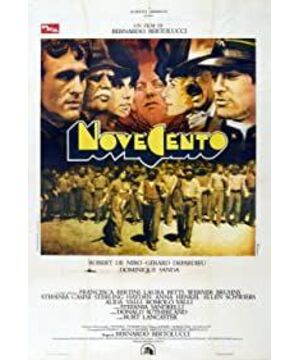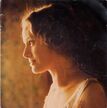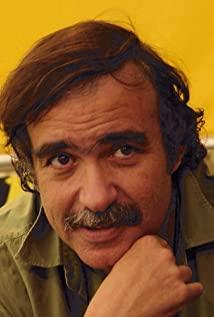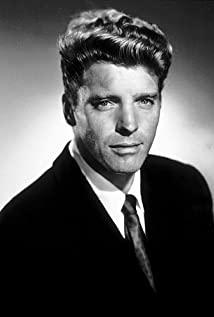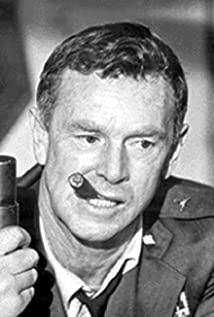Movies are like people. It's not just Bertolucci actually, it seems to me that a lot of Italian films are like that. In addition to Bertolucci, Pasolini, Fellini, and Antonioni... There is even Dindo Barras who has been making tertiary films. From them, I also experience a kind of intricate—sudden, casual, dark humor; also, a light hysteria. This hysteria is a kind of national temperament. Perhaps in Bertolucci's eyes, history itself has always had a certain comic quality, cruel, violent, wild, and uncontrollable, just like the grasshopper that appeared at the end of "The Last Emperor".
Going back to 1900—a film that seems to have been somewhat epic from the start—in 1900, on the day the great Italian composer Verdi died, the farmer’s grandson, Alfred Born at the same time as the tenant's grandson, Olmo - there is a halo of fate in the beginning. The completely different backgrounds and life experiences determine the competition and wrestling of these two people in their lives, as well as their lifetime love. They went down different paths - Olmo eventually became a communist fighter, and Alfred the logical landlord. After the end of World War II in 1945, Mussolini was shot by the guerrillas, and the Emily Farm ushered in a revolution. Olmo took the tenants and raised a huge red flag in the small square and put Alfred on trial. - but all, it looks like a dark comedy sitcom. At the end of the film, Olmo and Alfred are both old, their waists are shriveled and their beards are gray, but they still fight like they were children, and the gray-haired Alfred looks at the train coming in the distance. , lying on the rails... At the
time of making this film, Bertolucci's "Last Tango in Paris" was a huge commercial success, and among his ambitions, of course he wanted to make a film bigger than "Last Tango in Paris" 》An epic with a more connotative span. The time span of "1900" is at least 80 years. Think about the past 80 years. This period may be regarded as the most prolific period in human history, and the period with the largest ideological leap. Various trends of thought have appeared, and human beings have entered a complex and colorful era. Judging from the selection of actors in this film, it can also prove Bertolucci's ambition: two male protagonists, one is the American Hollywood actor De Niro, and the other is the most famous French actor Del Paio . De Niro and Del Paio in 1976 were both young. De Niro, in particular, looks delicate and elegant, handsome and elegant; it looks like he turned upside down later, as if he had made a clean break with his previous self. Not only that, but De Niro and Del Paio are also considered to be dedicated to Bertolucci. , they even sacrificed their "hue" for it - in the movie, there is actually a * shot of De Niro and Del Paio - in my opinion, such a shot is not necessary at all, such blunt nudity is obviously A manifestation of Bertolucci's "shaking" of thought. Bertolucci is a guy who gallops around on a wild horse.
It is precisely because of the lack of reins. In this 5-hour-long film, in addition to seeing the magnificent golden color of the film, most of the time, we can only feel the softness and procrastination of the film. To Bertolucci's wishful thinking. He galloped freely on the field, ignoring the blurring of the surrounding scenery. Sometimes when I watch Bertolucci drift away in awe, I always wonder, what the hell is this guy up to? I really don't know what Bertolucci wants to show.
That day, several friends who were writing were discussing Jia Pingwa and Chen Zhongshi, saying that they disapproved of each other in the west. I said at the time that, in comparison, Lao Jia was a little more accomplished. Not to mention the content of the works, Jia Pingwa should be said to be a person who has made great contributions to the Chinese language. As for Chen Zhongshi, even if "White Deer Plain" is amazing, it can't be said to be an epic, right? Epic is something that contemporary people want to do. At the very least, it must be carried, tolerated, and admitted by the next generation.
I am telling the truth. An epic, like Everest, should have a stern wind on the top of a mountain, clear, tolerant, wise, and rigid without desire; in addition, there should be a kind of pathos, just like the Bible or Homer's epics. ”; also, Tolstoy, Beethoven. I have always disliked many self-talking histories in the world. In my opinion, among the many national histories in the world, only the Bible maintains a pathetic attitude towards one's own nation. Look at the path you've traveled. And more national history is like a show and display of chauvinism. In such self-expansion, it is difficult to find the right direction.
The same is true for 1900. For "1900", what I want to say is that it is an atmospheric film with extraordinary tension, but it still cannot be an epic. While the last century was an epic age of forgetting, remembering, betrayal, friendship, alienation, viciousness, cruelty, abandonment and reincarnation, we have never found the best way to look back. This era with too many variables is too impetuous. We are always sullen, powerless or powerless.
View more about 1900 reviews


